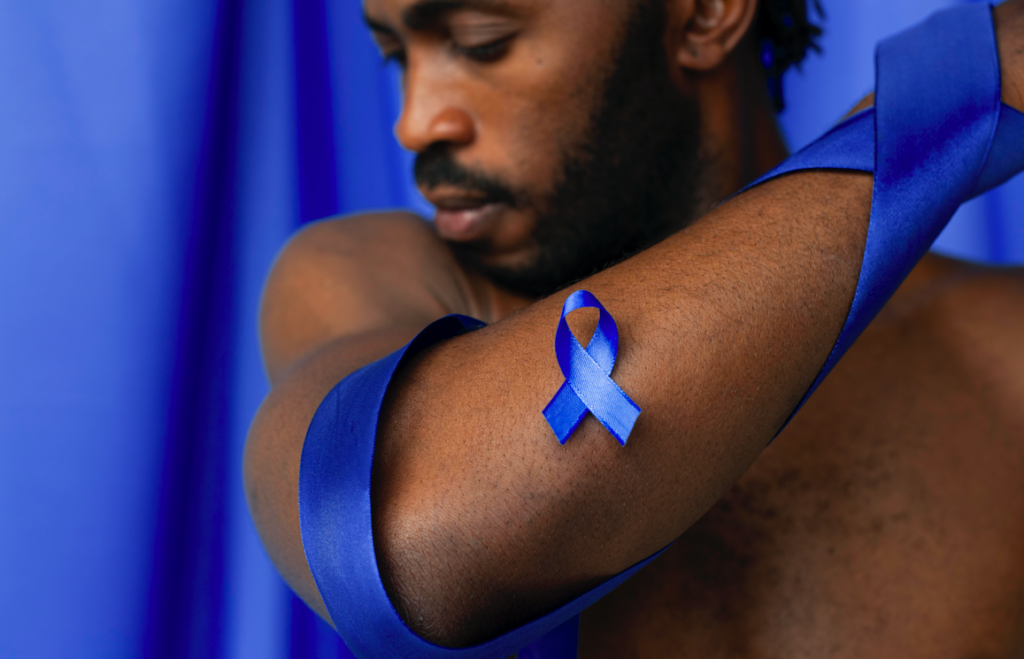March 21st marked Anal Cancer Awareness Day, a day dedicated to raising awareness about an often-overlooked form of cancer. Yet, for many individuals, anal cancer is an urgent health crisis that cannot be ignored. The theme of this year’s observance, “It’s Time to Talk About It,” is crucial as global incidence rates continue to rise.
It is time to have an open conversation about anal cancer, its causes, risk factors, impact, and, most importantly, the need for prevention, early detection, and treatment.
The Reality of HPV and Anal Cancer
As an HIV clinician deeply involved in male sexual health, including HIV and HPV care and prevention, the realities of anal cancer are evident. While preventable, anal cancer remains under-discussed, particularly among vulnerable groups, including people living with HIV, sex workers, and men who have sex with men.
Despite clear evidence linking anal cancer to the human papillomavirus (HPV), a common sexually transmitted infection, prevention and early detection strategies remain largely inaccessible to those most at risk. Up to 95 percent of anal cancer cases are linked to persistent HPV infection. HPV vaccination and regular screenings can prevent and detect anal cancer early, potentially saving lives. However, these solutions are often under-utilized, especially among communities where stigma surrounding anal health and sexual practices prevails.
Lack of awareness and resources for prevention leads to many high-risk individuals being diagnosed at late stages, worsening outcomes. The intersection between HIV and HPV vulnerability necessitates urgent attention, as HIV-positive individuals are at least 20 times more likely to develop anal cancer than those who are HIV-negative.
A dedicated anal health screening program has been developed, implementing standardized procedures and an expanded HPV intake screening tool within a larger international, multisectoral collaborative research program. These tools have been reviewed and approved by health authorities as part of a broader advocacy effort to enhance early screening, vaccination, disease detection, and treatment access, particularly for HIV-positive men who are at higher risk for HPV-related diseases such as anal warts and cancer.
The Case for HPV Vaccination and Screening
Most available data on anal cancer incidence comes from high-income countries, while specific data in Kenya remains limited. However, cases at local clinics highlight the severity of the issue. In recent years, multiple diagnoses of anal cancer were made, with most patients presenting at late stages and experiencing severe complications. One individual who received early detection via screening successfully completed chemotherapy, emphasizing the importance of timely intervention.
HPV vaccination, combined with regular screenings, offers a powerful means of prevention. Studies in countries with established vaccination programs, such as Australia and the United Kingdom, show significant reductions in HPV infections and related cancers through gender-neutral vaccination campaigns. Implementing such programs is essential to addressing health inequities, particularly for HIV-positive individuals and other vulnerable groups.
Although men and boys are significantly affected by HPV and its related cancers, they are often excluded from vaccination programs. Gender-neutral campaigns are crucial in ensuring equal access and prevention for all.
Breaking the Silence: Stigma Reduction and Awareness Creation
Many individuals delay seeking care due to fear of stigma, discrimination, or judgment. Stigma reduction and awareness creation must be central to any comprehensive anal health strategy. Healthcare systems should provide compassionate, non-judgmental care, and HPV campaigns should be inclusive of all individuals, regardless of gender or sexual identity.
Beyond clinical practice, education plays a vital role in shifting the narrative around anal cancer. Cultural taboos often silence discussions on anal health, particularly in the context of sexual health. Awareness campaigns provide an opportunity to encourage these important conversations, normalize screenings, and promote preventative HPV vaccination.
Advocating for Change and Health Equity
Anal Cancer Awareness Day serves as a call to action for governments, healthcare providers, and civil society to prioritize the fight against this disease. National health organizations should incorporate boys and men into HPV vaccination programs, especially those in high-risk groups.
Additionally, improving data collection on anal cancer is critical. Increased investment in cancer registration systems and data collection efforts will allow for better tracking of disease prevalence and incidence, helping to prioritize prevention and care strategies.
A Call to Action: Let’s Talk and Act
The call to action is clear: It’s time to talk about anal cancer. Uncomfortable conversations must be had to dismantle stigma, promote awareness, enable early diagnoses, and increase access to care.
Anal cancer It’s time to talk about it!

